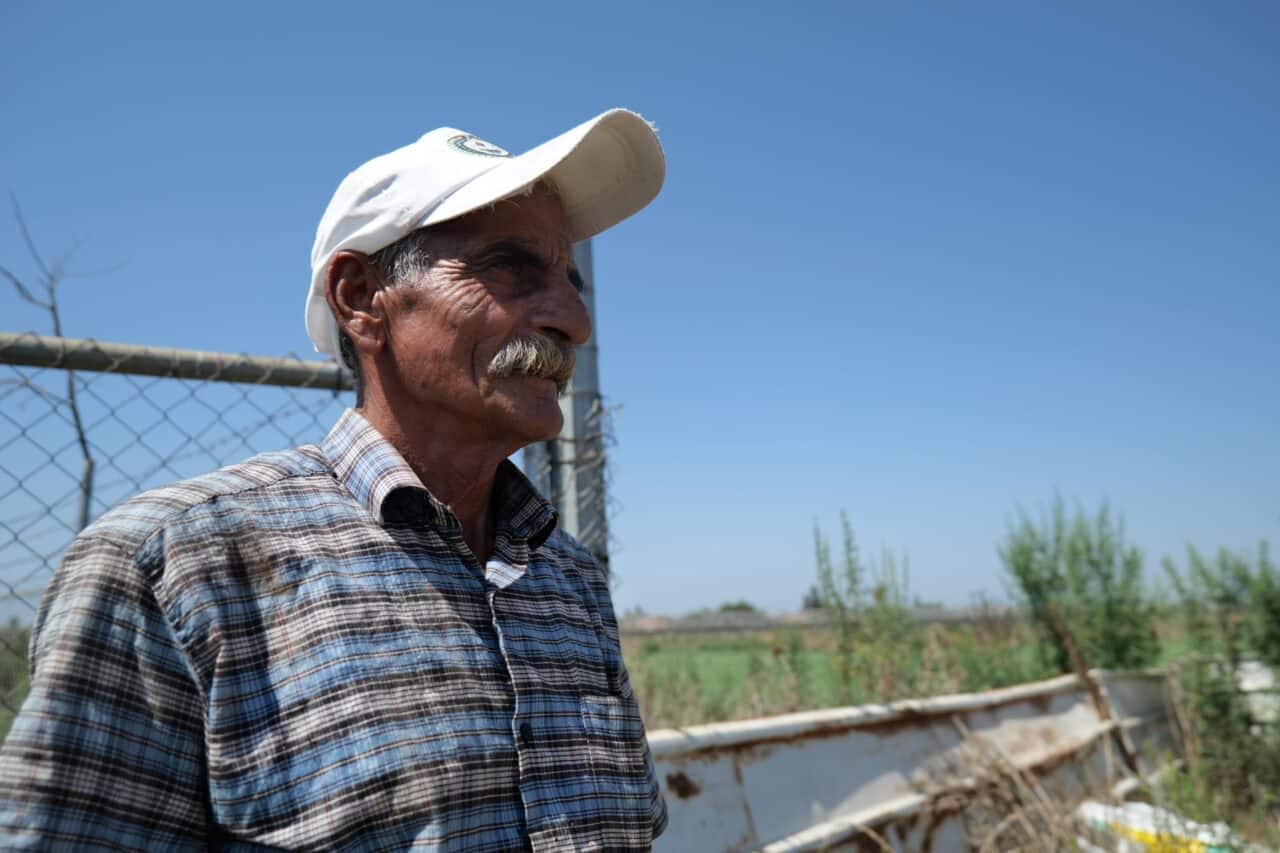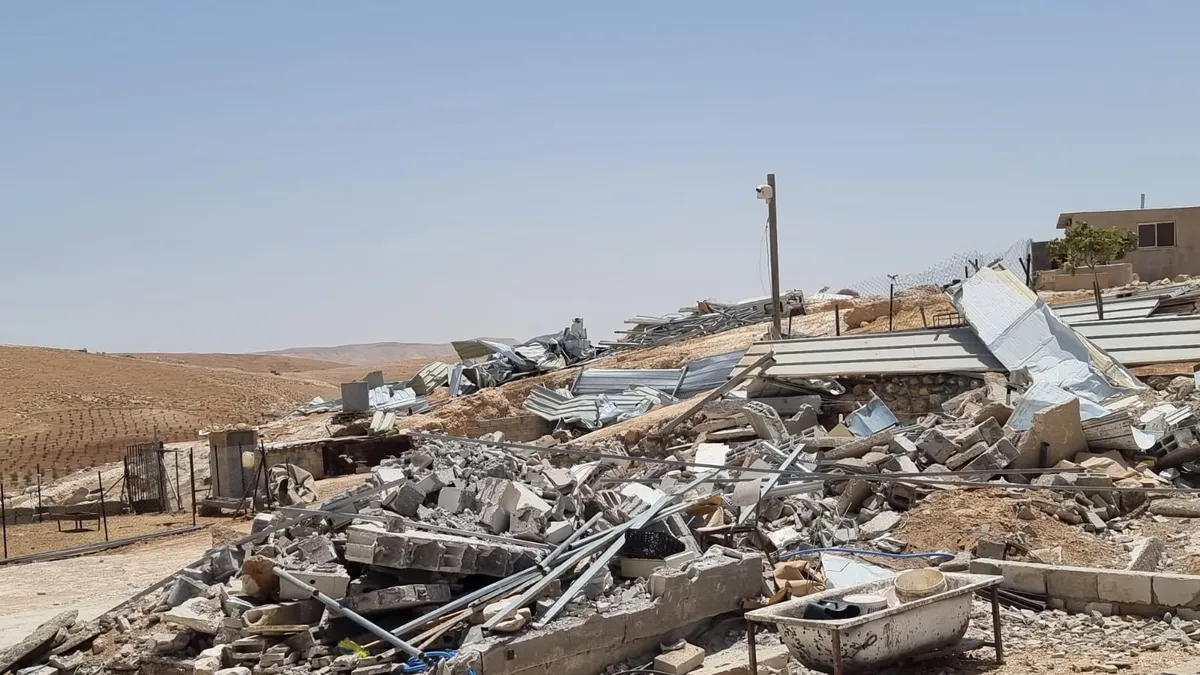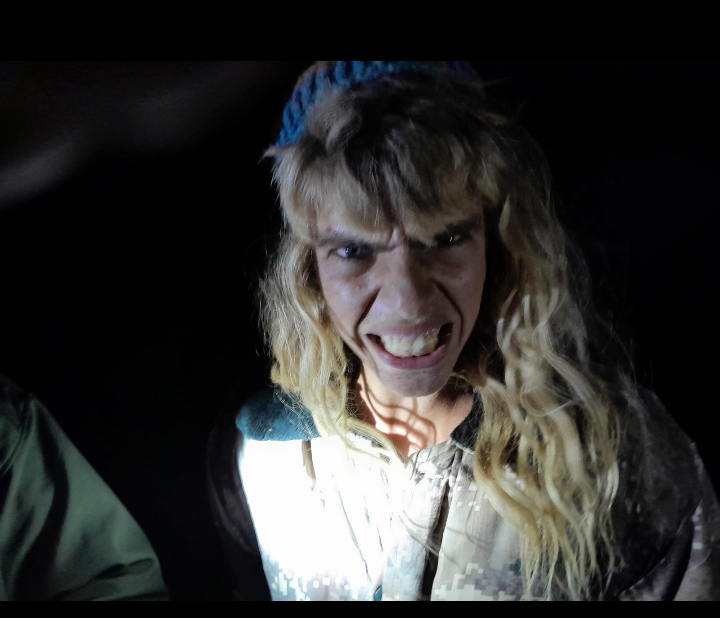Tag: Farmers
-
Palestinian Farmers call for international support this olive harvest
by Diana Khwaelid Riziq Hamid, 65, is not the only Palestinian farmer whose land has been confiscated by Israel. About two weeks ago, Israeli bulldozers bulldozed and vandalized dozens of agricultural dunams in the Shuwaika plain area in Tulkarm, in the northern West Bank. Basim said Alyan is a farmer from the village of Deir…
-
Masafer Yatta Families Displaced Following Home Demolitions
7 December 2023 | International Solidarity Movement | Masafer Yatta, Occupied West Bank In just over one week, several Palestinian family homes were relegated to fields of rubble after occupation army bulldozers invaded several villages including al Deirat, Umm Lasafa and Umm Qissa. The demolitions left Palestinian children and their families homeless as the targeted…
-
Palestinian Families in Mleihat Endure Night of Terror Following Settler Home Invasions
During the home invasions, the settlers committed violent assaults of Palestinian residents, traumatized children, insulted the women of the home and stole sheep from two Mleihat residents.



